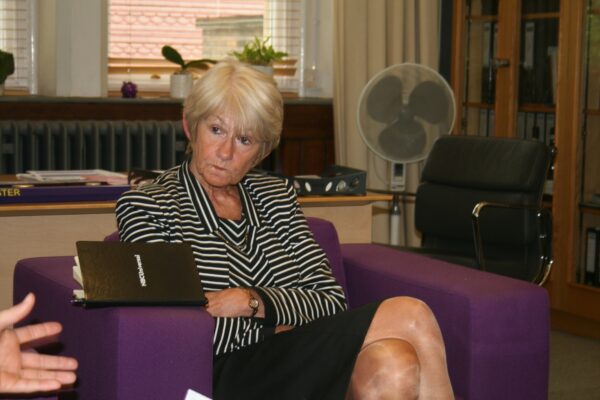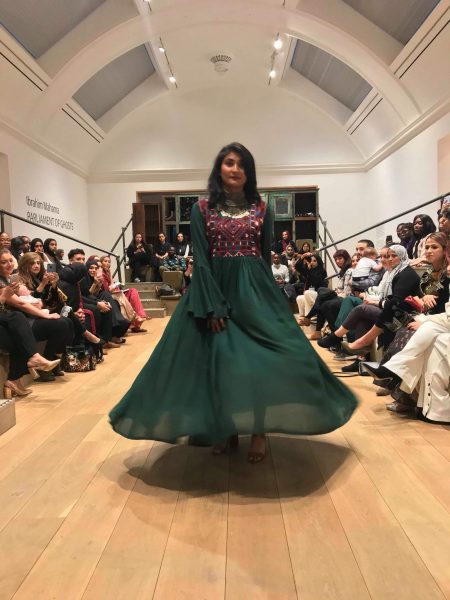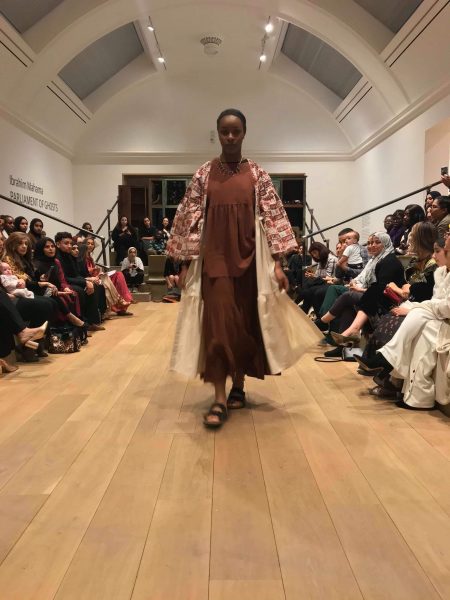Accounting for Style is a new series at the Mancunion Fashion & Beauty section in which anonymous Manchester students track all of their fashion and beauty purchases over the period of a month. Get a glimpse into the way your peers spend their money on their style, the splurges and the savings…
A trip to Paris Fashion Week and adjusting to autumn/winter weather means one University of Manchester student spends slightly over budget this September.
Age: 20
Degree: English Literature
Degree year: 3
Yearly student maintenance loan: £3,875.00 (minimum)
Rent: £95/week (£380/month)- paid for by parents
Part time job? No, but I have some savings from a summer job and do irregular work (e.g. babysitting)
Any extra cash? My parents kindly give me £100 per month to help with commuting costs & because I have the minimum student loan
Monthly budget: £380
Fashion & beauty spending habits: I spend most of my money on fashion purchases and try and save in other areas (I don’t drink and rarely eat out). I don’t buy many beauty products (I usually ask for beauty products at Christmas and then use them for the next year- this is probably unhygienic but something has got to give).
Monthly estimated spend on fashion & beauty: I’m going to Paris Fashion Week with the brand I intern for this month, so I think slightly higher than normal as I will probably want to buy new clothes before I go/whilst I’m there. Let’s say £200.
5th September: My first purchase is a fairly practical, if boring, one! Socks and underwear from Primark – I try not to buy from cheap, fast fashion brands but I don’t have anywhere near the budget for bougie underwear. £8
6th September: £10 leaves my Monzo main account and lands in my ‘Winter Coat’ savings pot. I’ve had a £10 weekly direct debit to this pot since July because I have a bad habit for buying a terrible quality, cheap coat that falls apart by the end of winter. So this year, I decided I needed to have the money ready for when I find ‘the one’ that will hopefully last me a very long time. £10.
13th September: A whole week has passed and I haven’t spent any money on fashion or beauty, yay! £10 comes out of my account and into the ‘Winter Coat’ pot though. £10
14th September: I head into town with my mum and sister and end up in and amongst the & Other Stories (my true weakness) sale racks. I end up buying a highly discounted black linen wrap dress that I think will be great for Paris (I have to dress in line with the style of the brand I work for) as well as many summers to come. £26.55
15th September: I get home in the evening and many a internet browse leads me to the Beauty Pie website, a brand I’ve been interested in for a while. The concept is that they sell beauty products direct from the luxury beauty factories at the manufacturing cost. In order to make this happen, however, there is a monthly subscription fee. I sign up to the minimum monthly subscription fee (£5) and split it with my mum so we can try the products out and see what we think. I end up choosing a new cleanser and a lipstick, this also comes with a free mascara. Including the membership, the total comes to £18.
16th September: I go out looking for some VEJA trainers I’ve been after for a while. VEJA are a sustainable shoe brand who make the shoes in small batches, hence them being so hard to get hold of. They’re pricey (especially for someone who doesn’t love shoes) but you’re paying for the sustainability, which I’m really trying to do with my spending at the moment. I finally find the pair I want in Office and buy them with 10% student discount. £103
17th September: one of the eyelets in my new shoes has ripped! I call my mum for advice (this is a daily occurrence) on whether to return or exchange them and I am leaning towards returning them because I can’t afford them at the moment anyway. My mum tells me I should exchange them and get a new pair because I have been wanting a pair for upwards of a year and I need some practical shoes (this is very true). She kindly offers to pay because she knows I am struggling with not having a job this year so I can focus on my degree and unpaid roles. -£103
18th September: I try to exchange the shoes but they’re sold out in my size (the saga never ends). I go to Flannels and they have my size there but they don’t do student discount so I pay full price. The difference is £12.
19th September: I head to the Northern Quarter for ‘research’ for an article on second-hand shopping and fall into Uniqlo. After trying most of the shop on, I buy a cream jumper and a black knitted midi skirt (£51.70). I also buy a playsuit from COW which isn’t even slightly seasonally appropriate but I couldn’t turn it down (£19). £70.70
20th September: Winter coat direct debit. £10
23rd September: Spend the morning planning my Paris outfits and decide I am going to go and buy an & Other Stories jumper that I have wanted for so long, to fill a hole in my wardrobe as ‘the perfect black jumper’. They offer 10% student discount so the total comes to £64
25th September: I’ve arrived in Paris without a moisturiser because the one I usually buy from Lush has increased in price and I don’t think it’s worth it anymore. I head into a French pharmacy and buy one based on the pharmacist’s recommendation (hoping I managed to communicate in French that I wanted a light, non-greasy moisturiser). It comes with a free micellar water too. £15.09
27th September: Winter coat direct debit. £10
28th September: Spent the afternoon wandering around Paris trying to find a pair of heels for a swanky event which I hadn’t realised was happening that evening. The only pair I like are £95 so I decide to wear flats – my feet and bank balance will thank me.
30th September: I realise I still have a €20 note left to spend (I go home tomorrow morning) so I go to a French pharmacy and pick up a Caudalie toner, two mini Loccitane shower oils and a mini Loccitane body lotion. This feels like fake money because I would have never gotten that €20 note changed back to pounds but nevertheless – £17.86
Overall spent: £271.75
Fashion: £221.25
Beauty: £50.50
Overall verdict: I went a little bit over my predicted spends but I am quite pleased that I didn’t buy any clothes in Paris, especially considering there were lots of times when I could have been tempted. Everything I did buy fashion-wise I have already worn a lot and so I’m not too annoyed at myself for this total, especially considering £40 of the money went into my Winter Coat savings pot.
I think my mum paying for my VEJA trainers definitely helped the overall total. But I’m so happy I didn’t return them because, since buying them, they’ve barely rubbed at all (despite many warnings that they would) and I’ve been wearing them all the time. The & Other Stories jumper was also a great purchase that I know I’ll wear all throughout the winter; I wore it nearly every day in Paris and it’s great for lounging around the house in too.
I’m really enjoying my Beauty Pie products so far and might even upgrade my subscription. The French pharmacy products are all great too although I probably could have saved that €20 for food at the airport which I ended up putting on my card. October definitely needs to be a month of saving although I might buy my winter coat with my savings if I end up finding the one because the temperatures are really starting to drop.
Overall, it could have been worse, could have been better, but in all honestly, it’s usually worse than this so I’m not going to be too hard on myself.
Would you like to anonymously track your fashion & beauty purchases for the period of a month for The Cost of Student Style? Email [email protected] to express your interest or come along to our meetings every Monday at 6:15pm in The Hive.




























